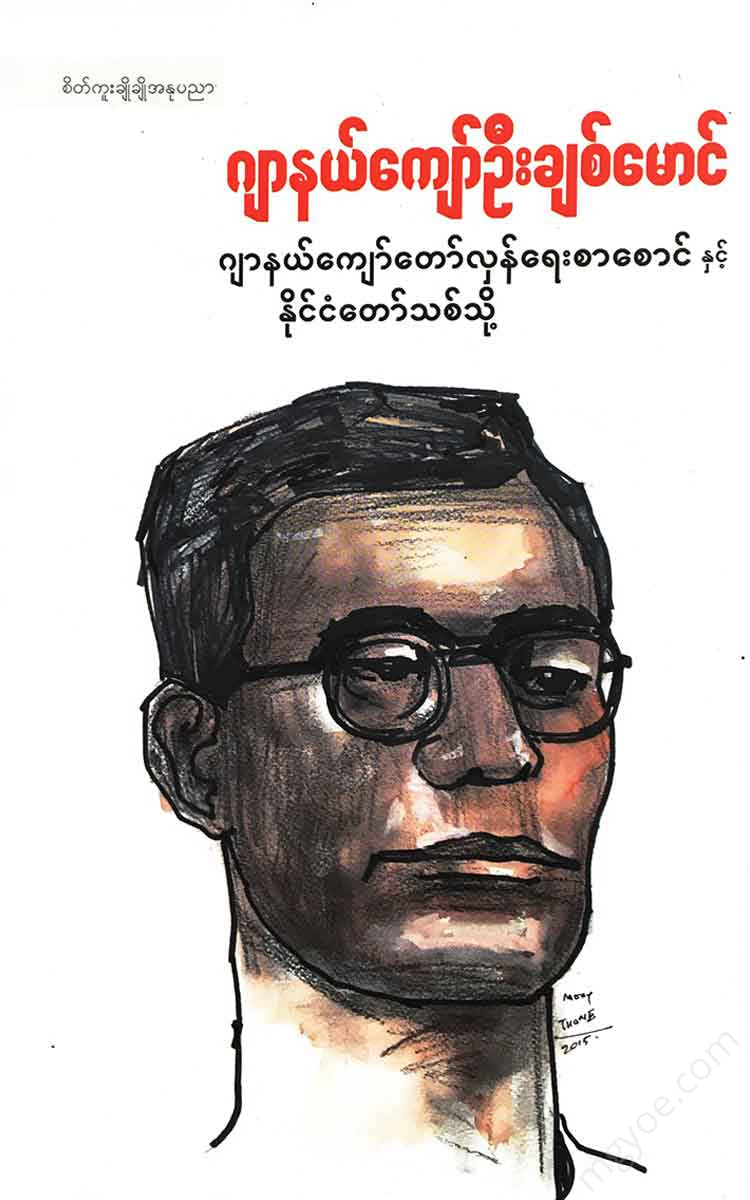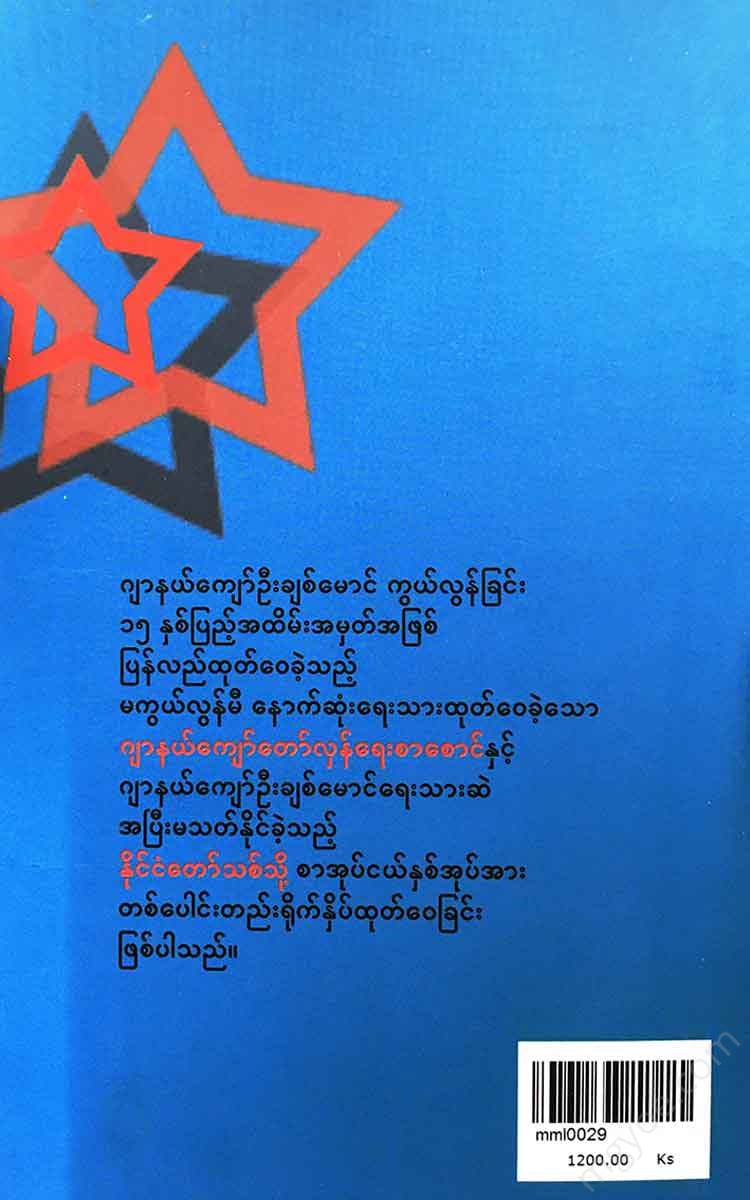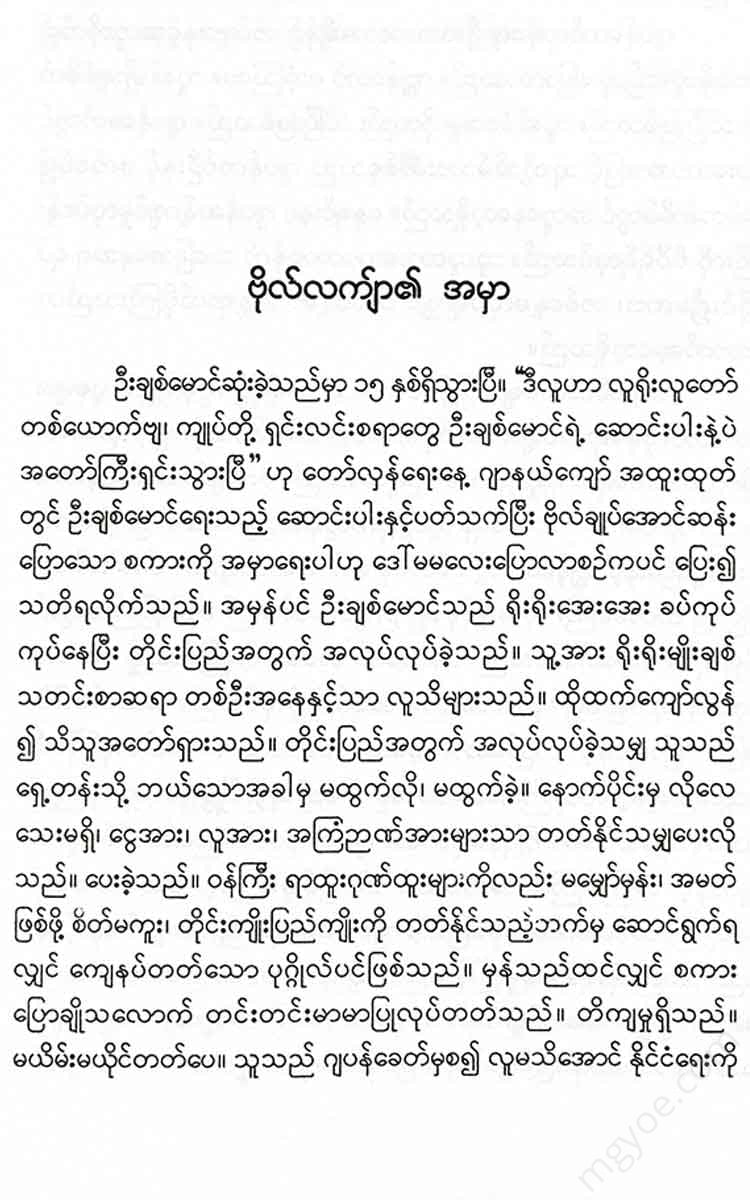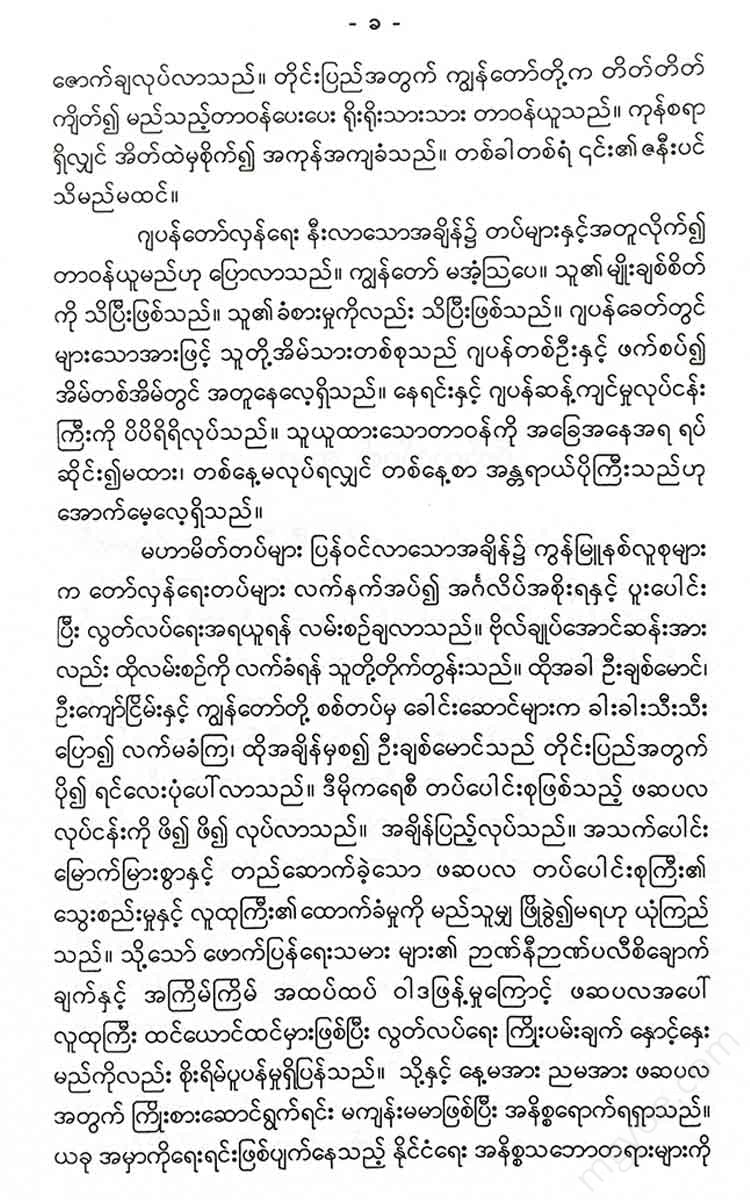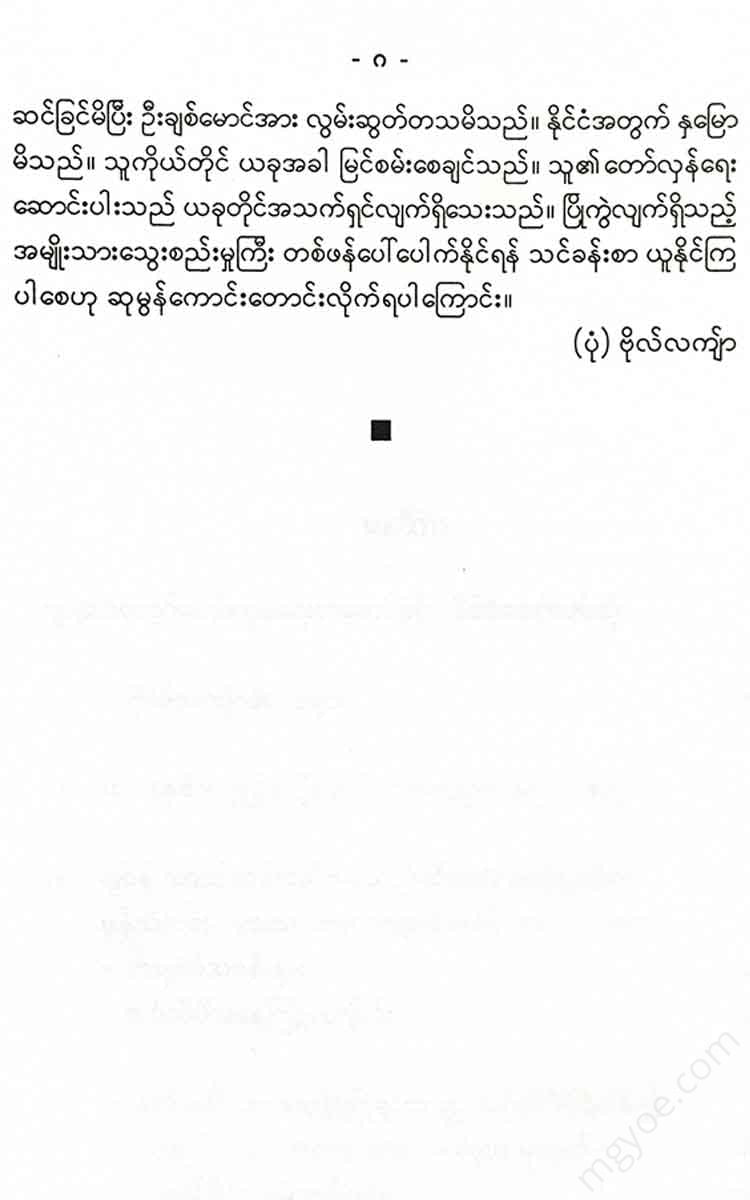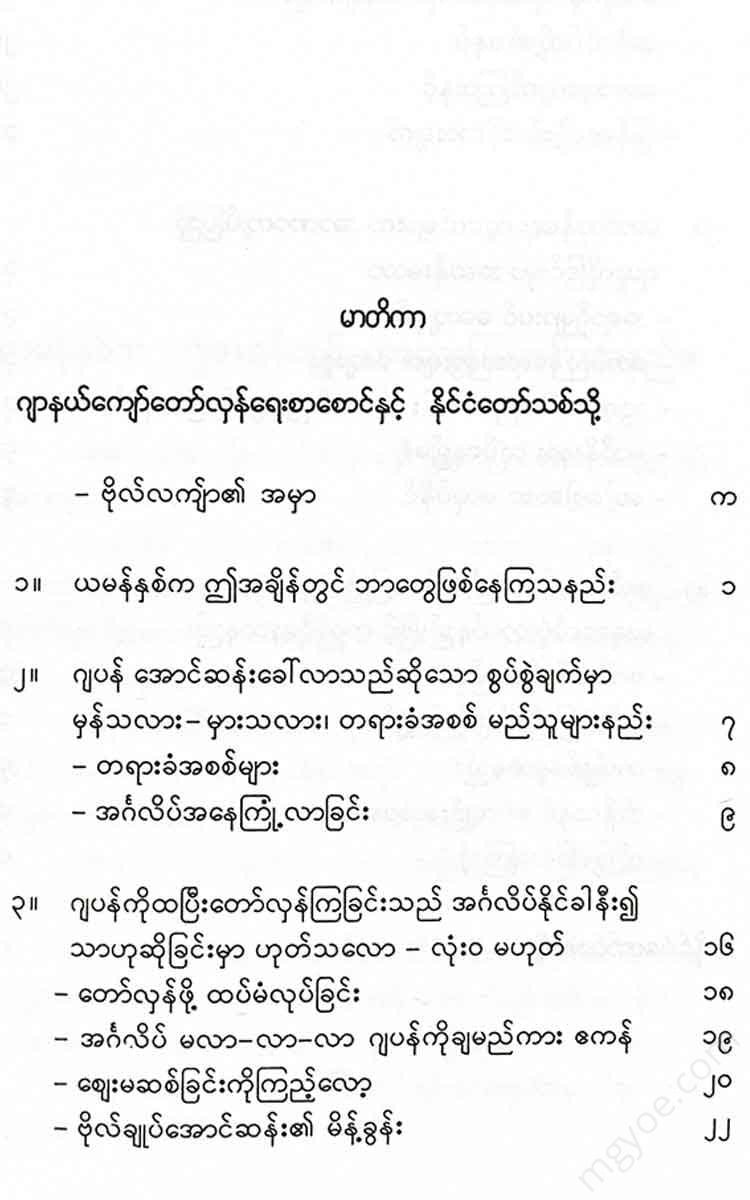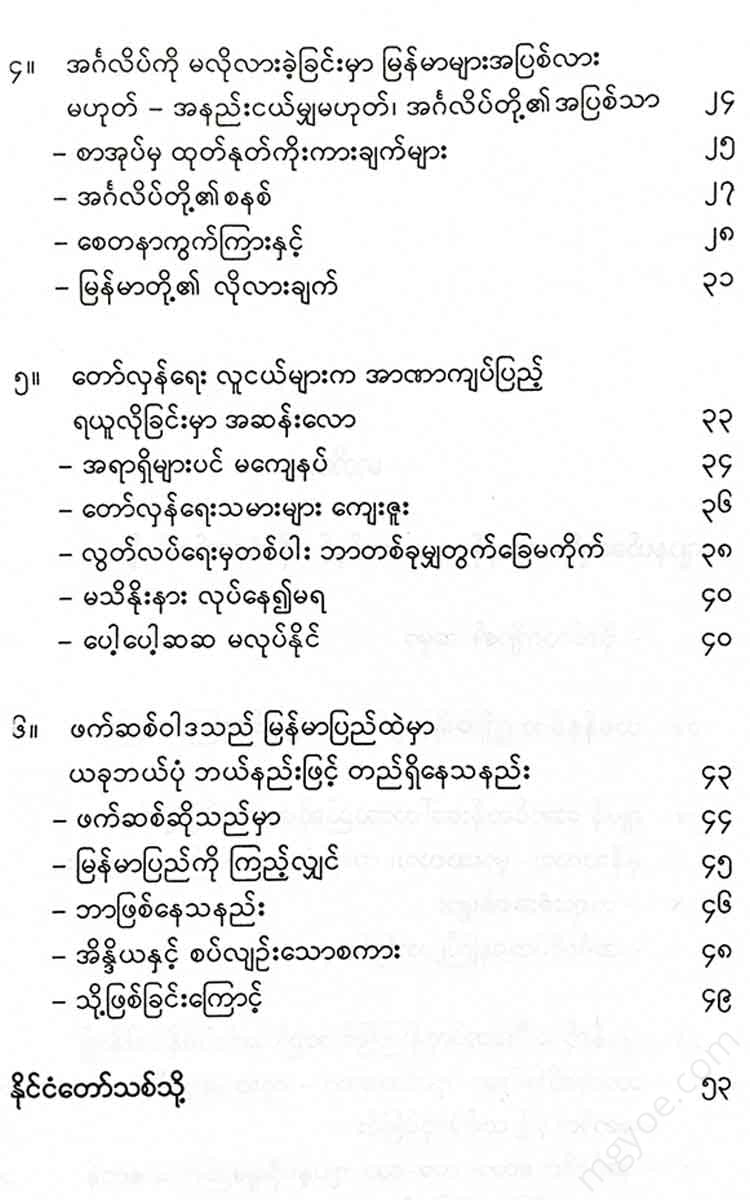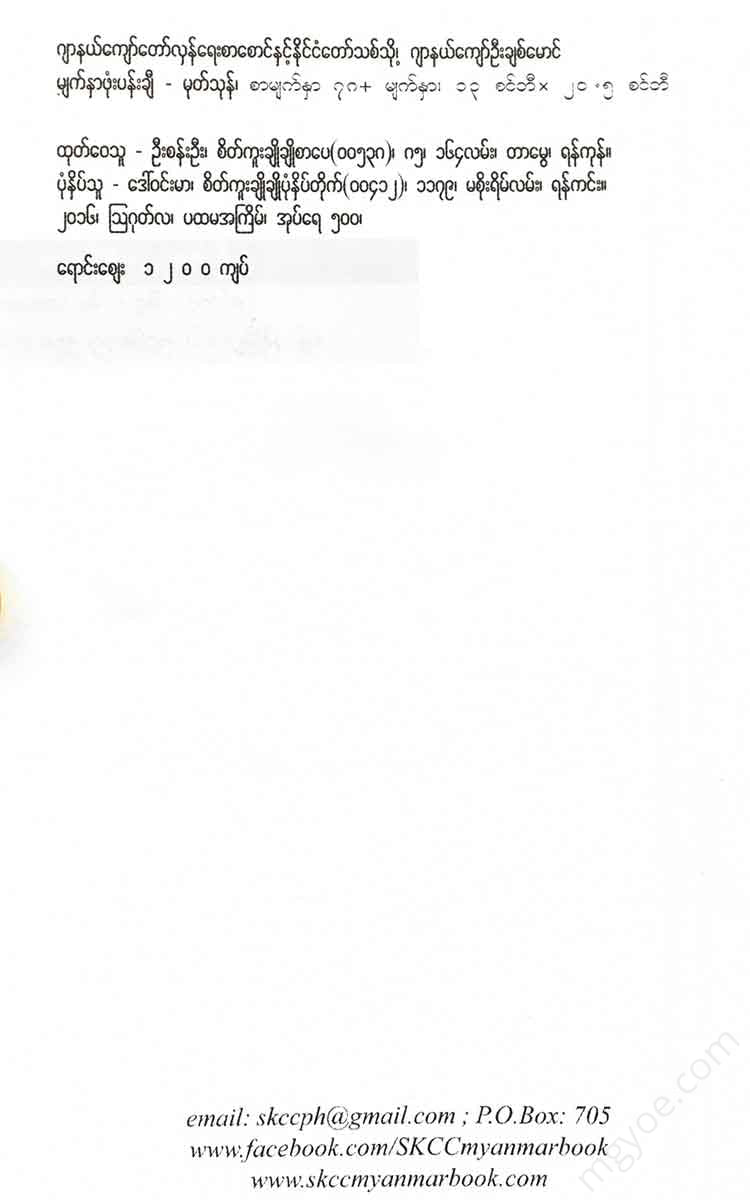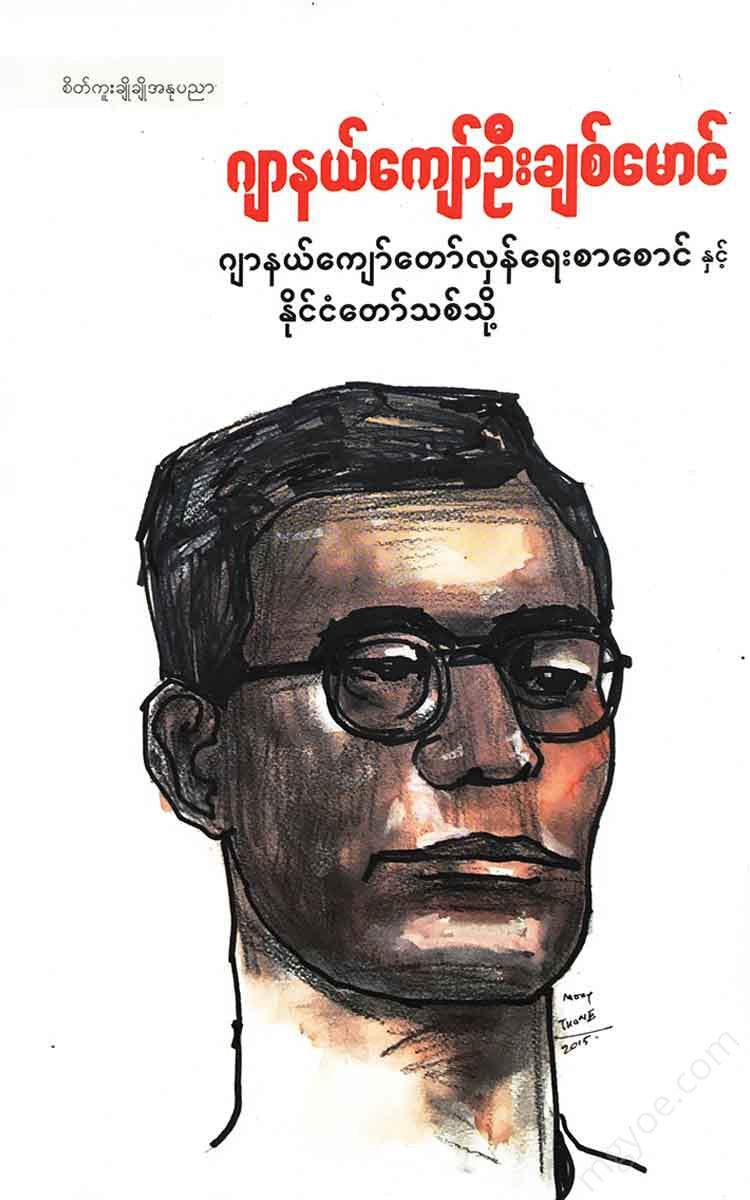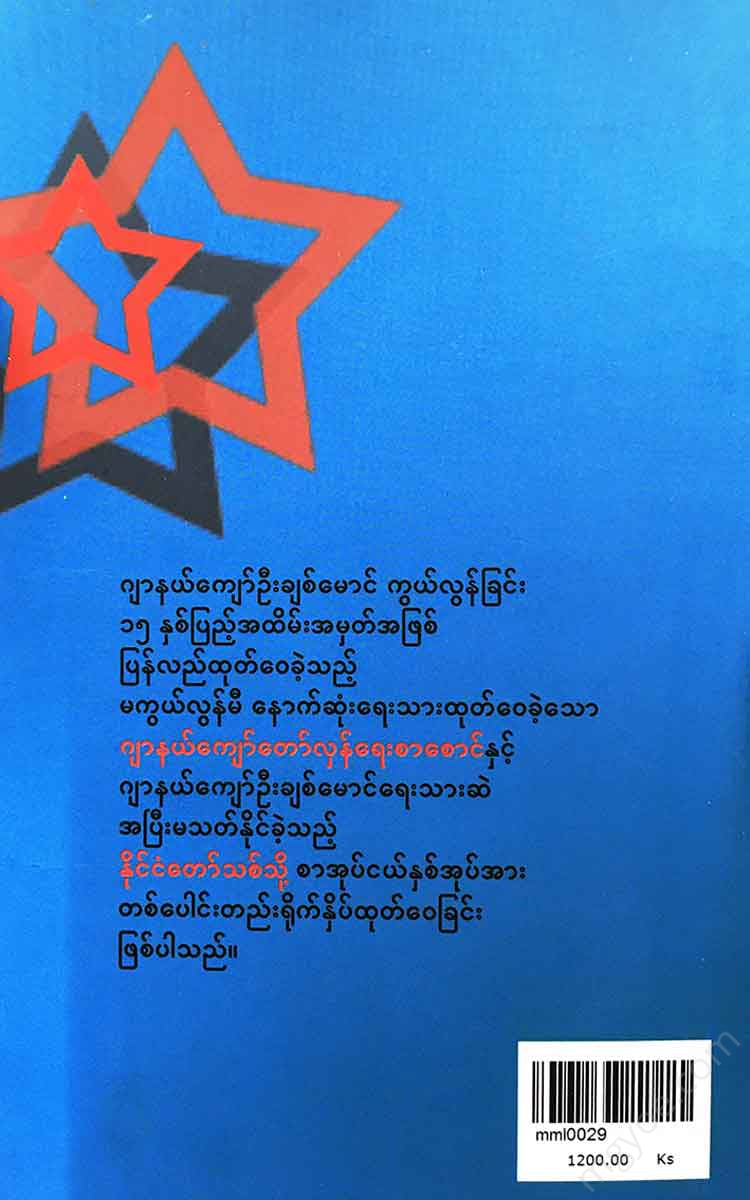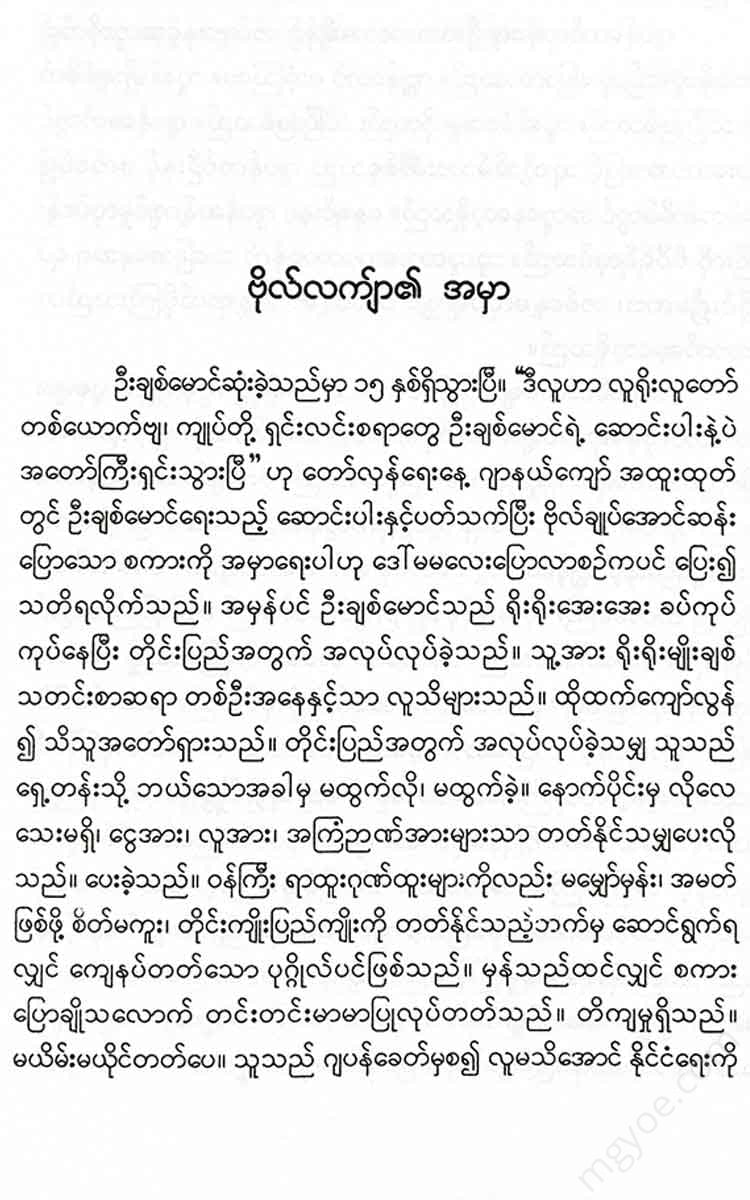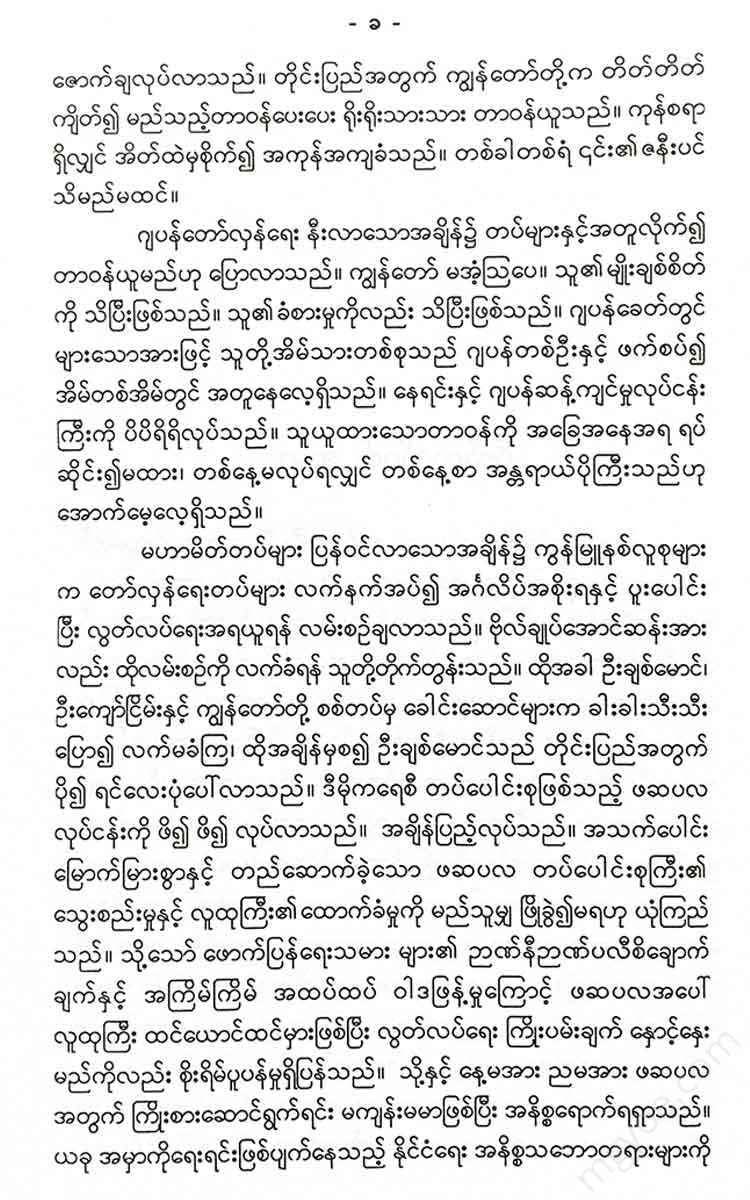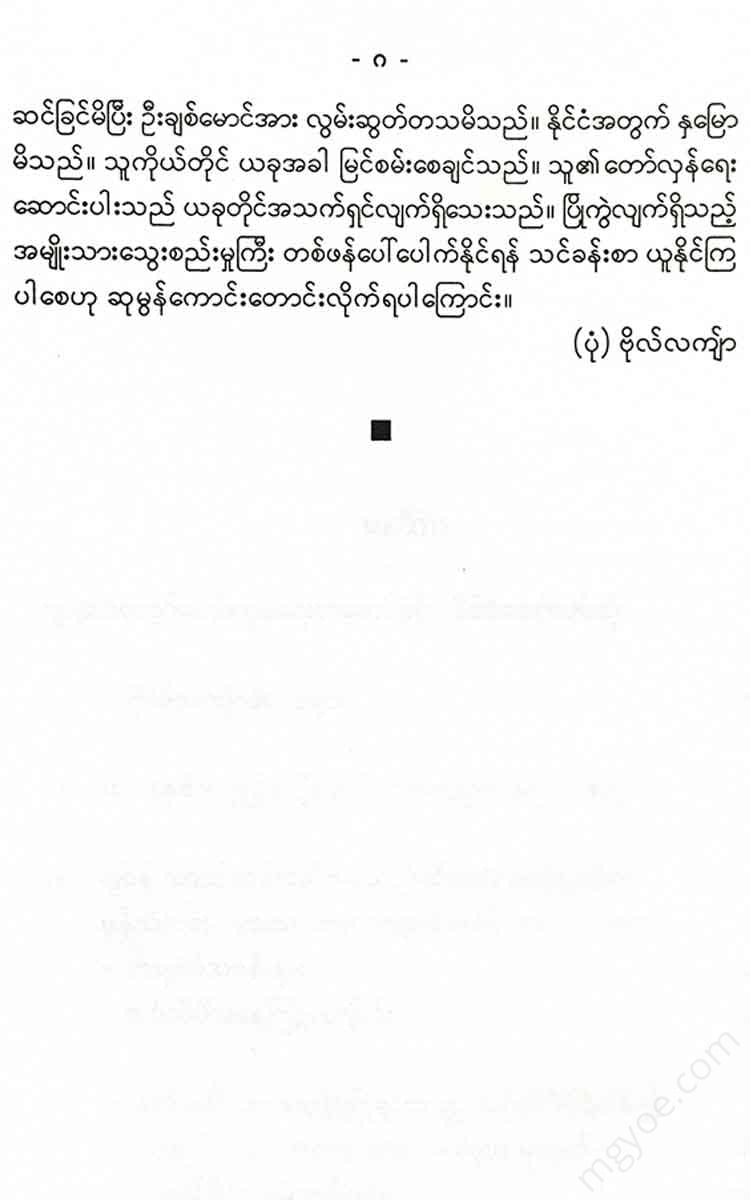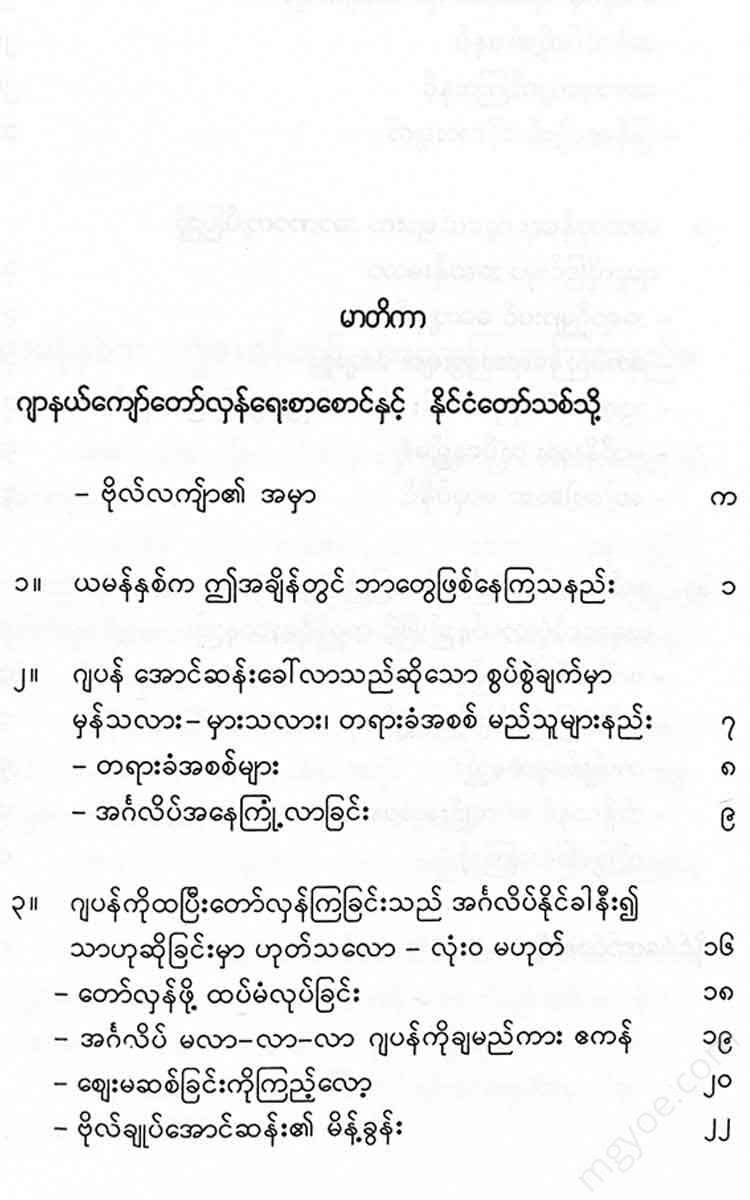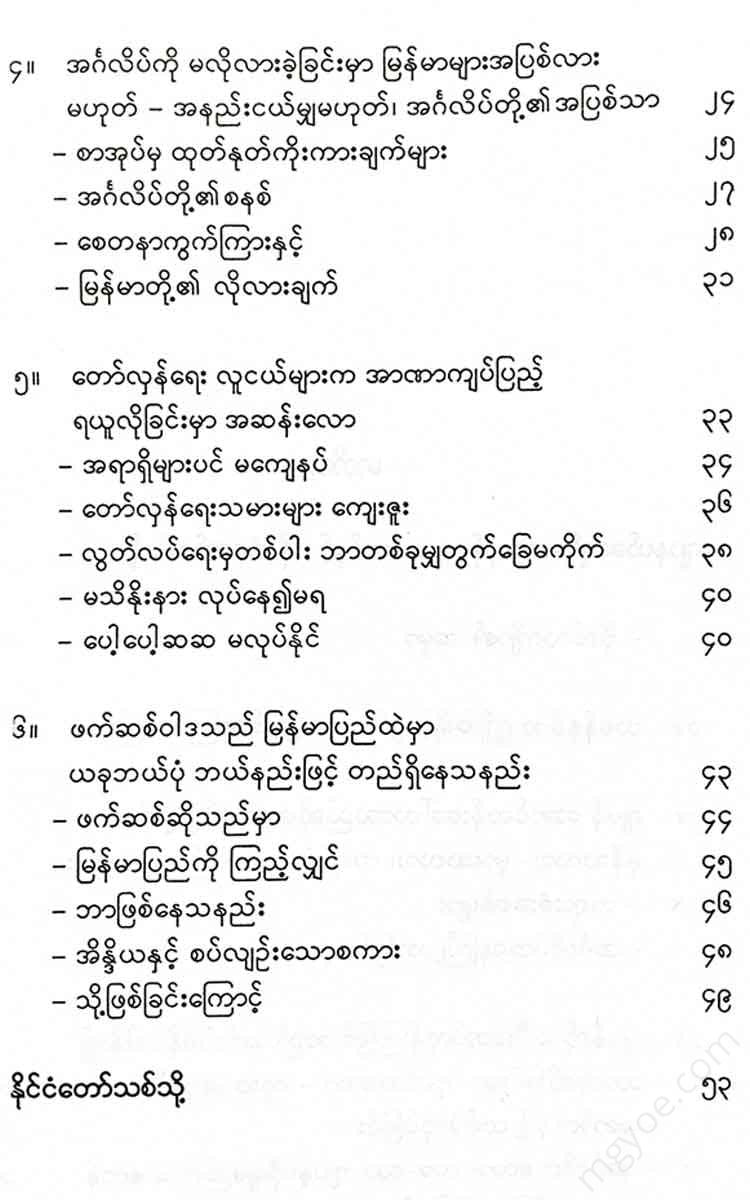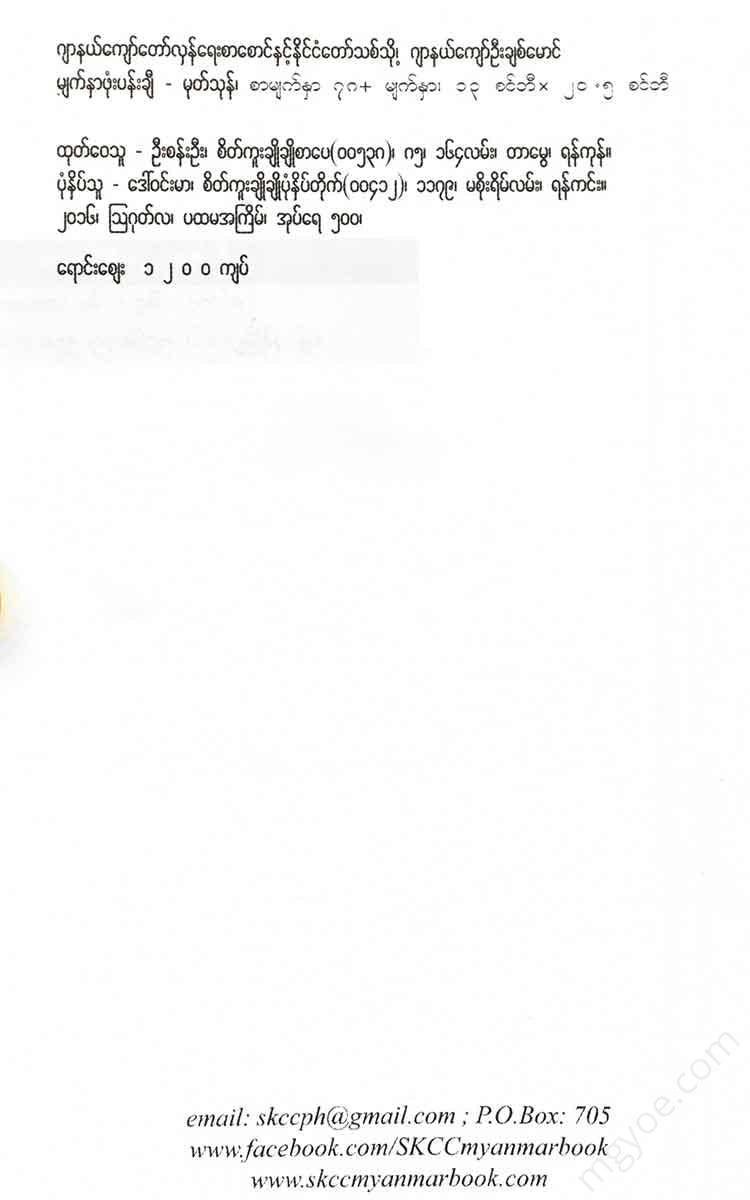စိတ်ကူးချိုချိုစာပေ
Journalist U Chit Maung - Journalist Kyaw Revolutionary Bulletin and Towards a New Nation
Journalist U Chit Maung - Journalist Kyaw Revolutionary Bulletin and Towards a New Nation
Couldn't load pickup availability
What was happening this time last year?
What was happening in Myanmar at this time last year?
Every citizen of the country who thinks back to what happened at this time last month will be filled with fear, some will grit their teeth, some will clench their fists, some will draw their swords, some will grab their guns.
It's impossible for anyone to think back to last year... or the two years before last year without something happening in their minds.
The Japanese ruled everywhere in various evil ways.
Japanese traders are forcibly taking goods from the hands of Burmese people at gunpoint and exchanging them for worthless banknotes.
Japanese soldiers are extracting what they want from the Burmese people.
Journalist U Chit Maung, known as the Japanese Military Police, is arresting, oppressing, and oppressing the entire country of Burma, making it unable to move or dare to move.
The events depicted in the pictures on these pages were happening everywhere, every day. The Burmese people were living in extreme poverty, eating and behaving in a very restricted manner under the Japanese, and they were only waiting for the steps of General Aung San and the Burmese Army to take to fight for their freedom from the Japanese.
The eyes of the whole country are focused on General Aung San. The ears of the whole country are hanging on the edge of General Aung San's words.
They had always believed that General Aung San's Burmese army would defeat the evil Japanese fascists, just as it had defeated the British colonial system in 1942. Accordingly, they were constantly watching the shadow of General Aung San.
Meanwhile, the Japanese are taking whatever they want without any restrictions.
They were following the footsteps of the Burmese army and were constantly investigating and tracking down the Communist Party, which they had received information about as being preparing for revolution.
Everyone knows the saying, "If you catch it, you'll die."
However, apart from a small group of people, many people in the country were helping to cover up the situation, not allowing it to be left behind in the villages and villages, and were helping to prevent any shadow from emerging or leaking out with extraordinary zeal. The revolutionary cause was firmly and steadily being planned from the bottom up, simultaneously with the revolutionary journal Kyaw Kyaw and the new state, to break through.
It was a time when the Japanese were watching and observing the Burmese people, saying that they could neither eat nor chew.
Despite this constant monitoring, on the night of March 27, at the command of the Burmese Army General, wherever the Japanese were seen, the Burmese army, guerrillas, and messengers rose up and opened fire with all available weapons, turning Burma's towns, villages, rivers, mountains, and forests into fascist Japanese graveyards.
After the uprising against fascist Japan in Rakhine State at the end of 1944, led by U Sanya Thiha, on March 8, 1945, Colonel Bo Ba Htoo launched another uprising in Mandalay, Burma. Since then, the patriotic guerrillas who were eager to rise up in other places and regions have been fighting against the Japanese since 7 p.m. on March 27, when they were given the opportunity to suppress and shoot at them as they pleased, not to mention suffering, not even risking their lives, to free the people of the country from fascist rule.
There were many comrades who died because the Japanese took the initiative. Even though they knew that the Japanese were strong, they still pushed forward and attacked, and the Japanese fired on them with great hostility and killed many comrades.
Just as the Japanese army was shooting young Burmese revolutionaries on sight, the Japanese junta, informed by some disloyal Burmese, was hunting down, arresting, and torturing those connected to the revolution.
However, the Tatmadaw and guerrilla forces, led by the front, the people of the city, and the townspeople, were attacking fascist Japan from all sides, and a fierce battle raged throughout the country, accompanied by the sound of gunfire.
They were killing and exterminating the fascist Japanese wherever they were found. Whenever they heard that the Japanese were there, they immediately attacked, shot, and killed them. The Japanese, in turn, fought back and killed them as best they could.
Last year at this time, Japanese troops were marching around the area where they had heard that Burmese revolutionaries were present. The revolutionaries, using every piece of information they could get from the people they knew, were following them and firing on them. Even the Allies had to admit that more than 20,000 Japanese had died at the hands of these young revolutionaries.
The guerrilla comrades, however, were not shying away from the Japanese revolutionary struggle as if it were a game, and even the allies admitted that they were doing it with great enthusiasm. The revolutionary soldiers were able to completely defeat the war that the allies would have had to fight for a long time in a matter of hours and days for the benefit of the Burmese people.
In this way, not only was the fire of fascist Japan quickly extinguished, but the danger of destruction due to the Allied bombing tactics, which were not intended to confront Japan, was also minimized.
Soldier Japanese, merchant Japanese, kenpeitai Japanese, ox-drawn Japanese, laborers Japanese, goods-drawn Japanese, cart-drawn Japanese, grain-collecting Japanese, young Japanese, fine Japanese, rough Japanese, no Japanese, right-wing Japanese, all Japanese, all of them, have been united and united in their fight to destroy the spread of fascism in Burma by shooting and killing everyone they find.
The three years of fascist Japan's expansion had cast a dark shadow over Burma. At this time last year, the military and police guerrillas were simultaneously dispelling the darkness with the light emitted from their weapons.
The Japanese's last attempt to destroy the homes, villages, towns, and livelihoods of Burmese people was immediately cut down and destroyed by the revolutionary youth, who took their lives without delay.
Now... we have escaped the clutches of Fascist Japan.
How can those who see and hear the sacrifices of our comrades belittle our work?
Who dares to underestimate or despise the great suffering that was relieved by the leadership of comrades and the country's unwavering support?
What cunning politician, with what deep wisdom, could break the great bond of blood that led comrades to the grave and fought together, with the strength that the country so strongly desired?
The soldiers and guerrillas entered the great pit of death and emerged from it with one heart, one mind, one body, and one mind, with the people of the country. How can any white paper or white paper be able to erase such a great and strong bond of blood?
